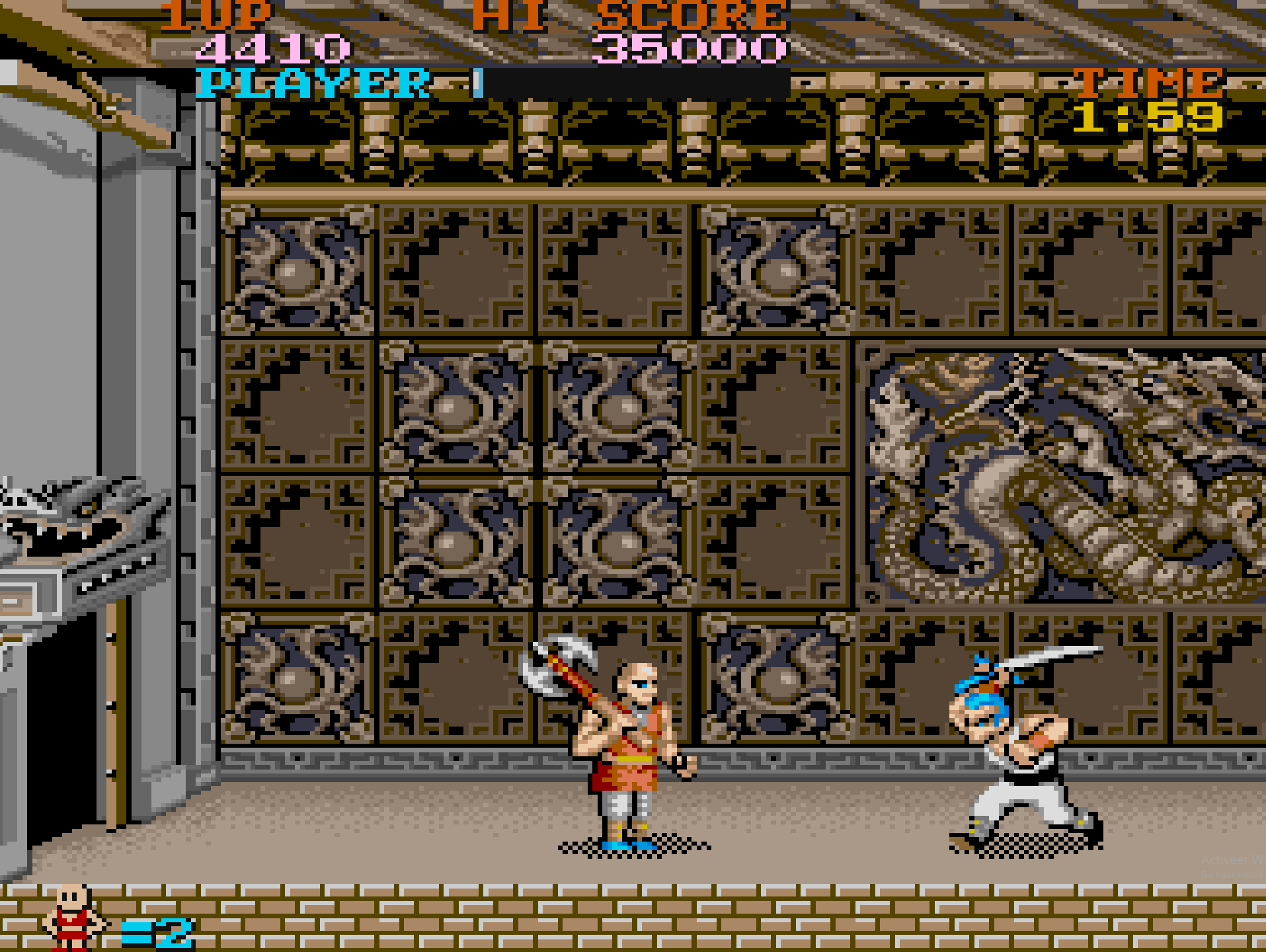Introduction
Released in 1987, Tiger Road is a side-scrolling arcade action-platformer developed by Capcom. Combining martial arts combat with platforming and power-ups, it challenged players to rescue kidnapped children from an evil warlord. Its mix of weapon upgrades and fast-paced action made it stand out in arcades.
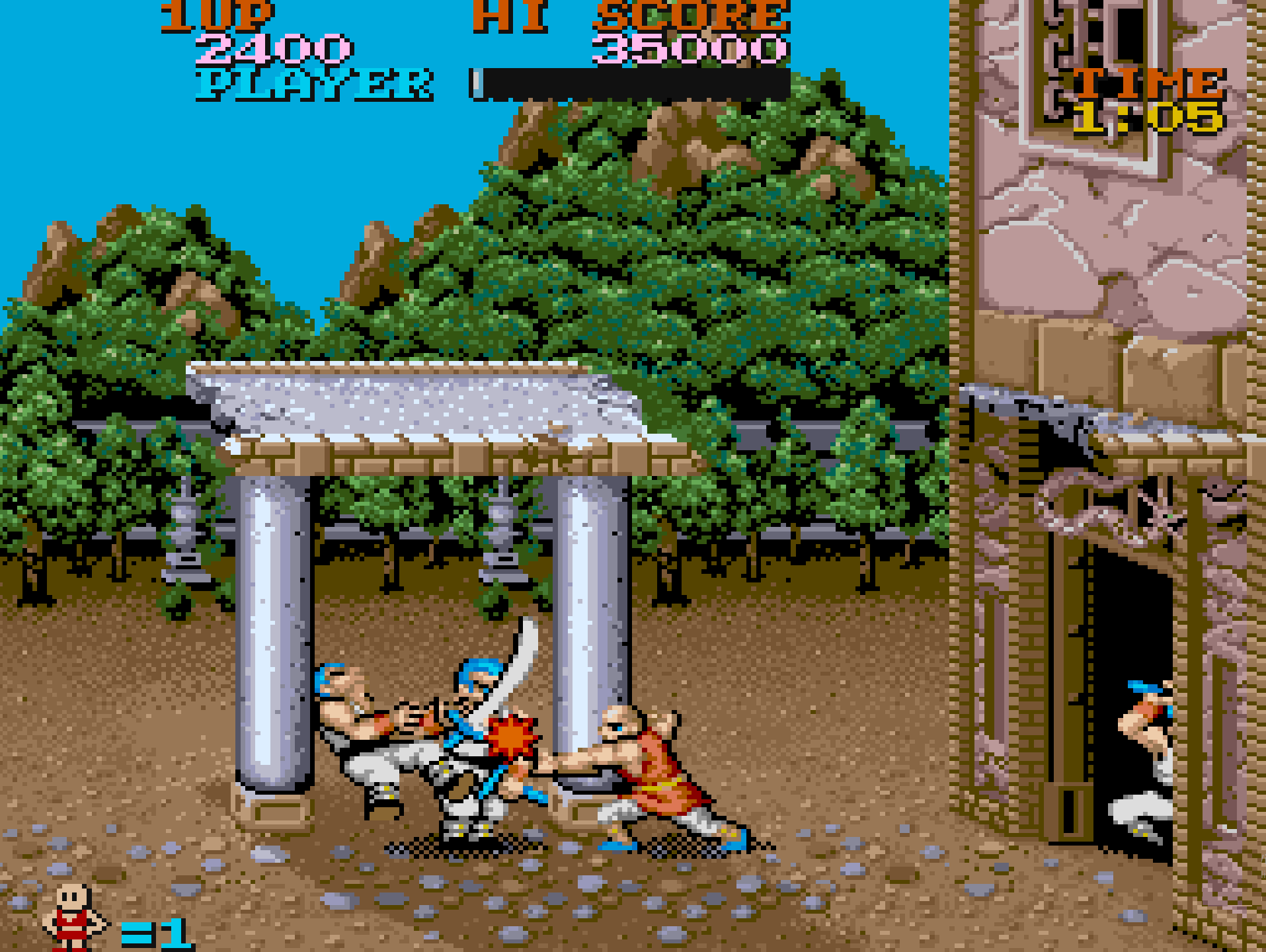
Development and History
- Developer: Capcom
- Publisher: Capcom
- Release Date: 1987
- Hardware: Capcom arcade hardware
Tiger Road was developed by the same teams behind other Capcom hits of the era, aiming to build on the popularity of side-scrolling action games. The designers incorporated a Chinese martial arts theme, large boss fights, and a variety of weapons to diversify gameplay. It was part of Capcom’s push to create visually striking, challenging arcade titles.
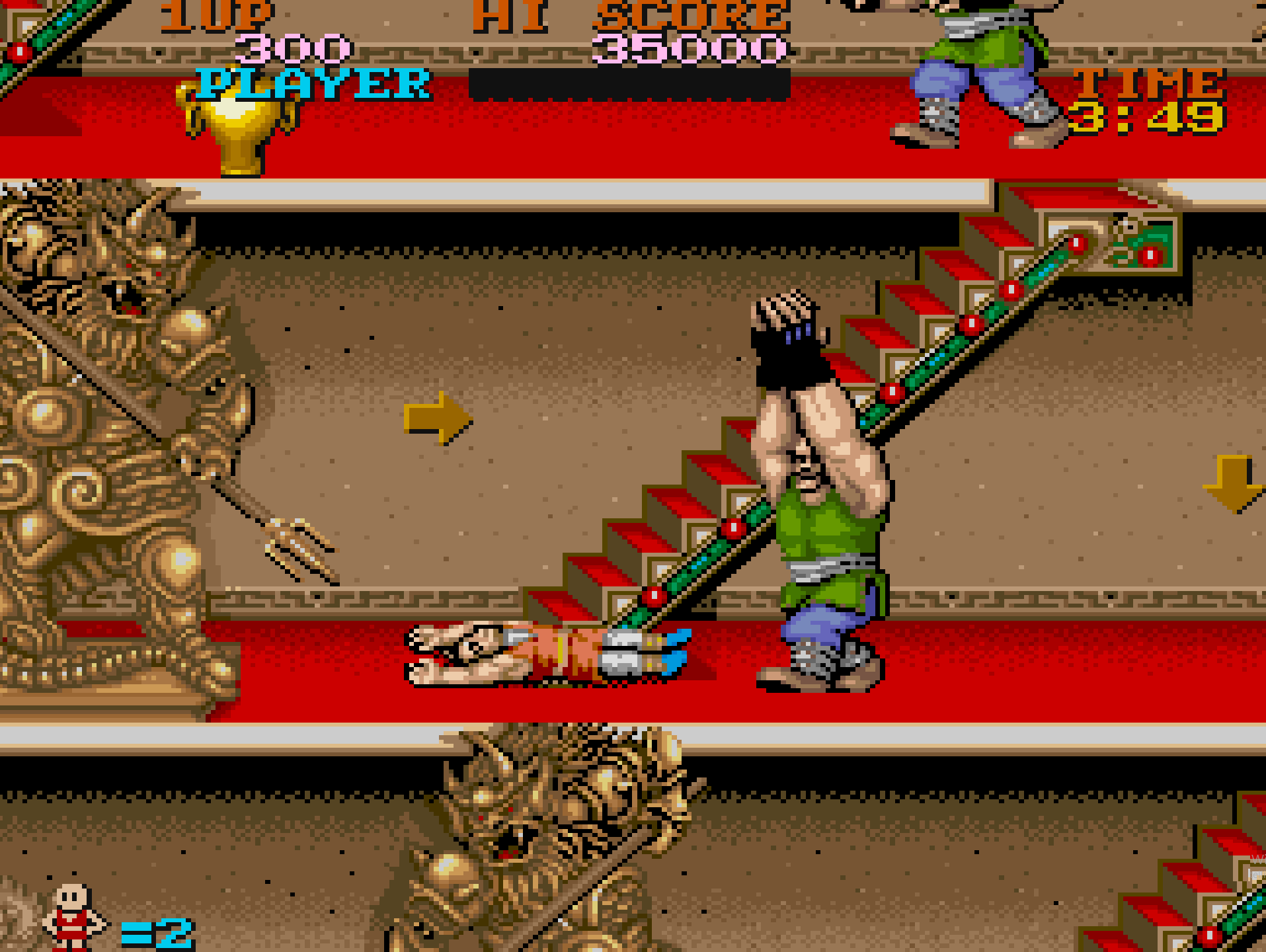
Gameplay Video
Gameplay and Mechanics
Players control the hero Lee Wong as he fights through multiple stages to defeat the villain Ryu Ken Oh.
Key gameplay elements:
- Melee Weapons: Use polearms and other weapons to defeat enemies
- Platforming Sections: Navigate pits, ladders, and traps
- Power-Ups: Collect items to restore health and upgrade attacks
- Special Techniques: Learn secret moves to improve combat abilities
- Boss Battles: Each stage ends with a unique boss fight
Skill and memorization are essential for progressing through later levels.
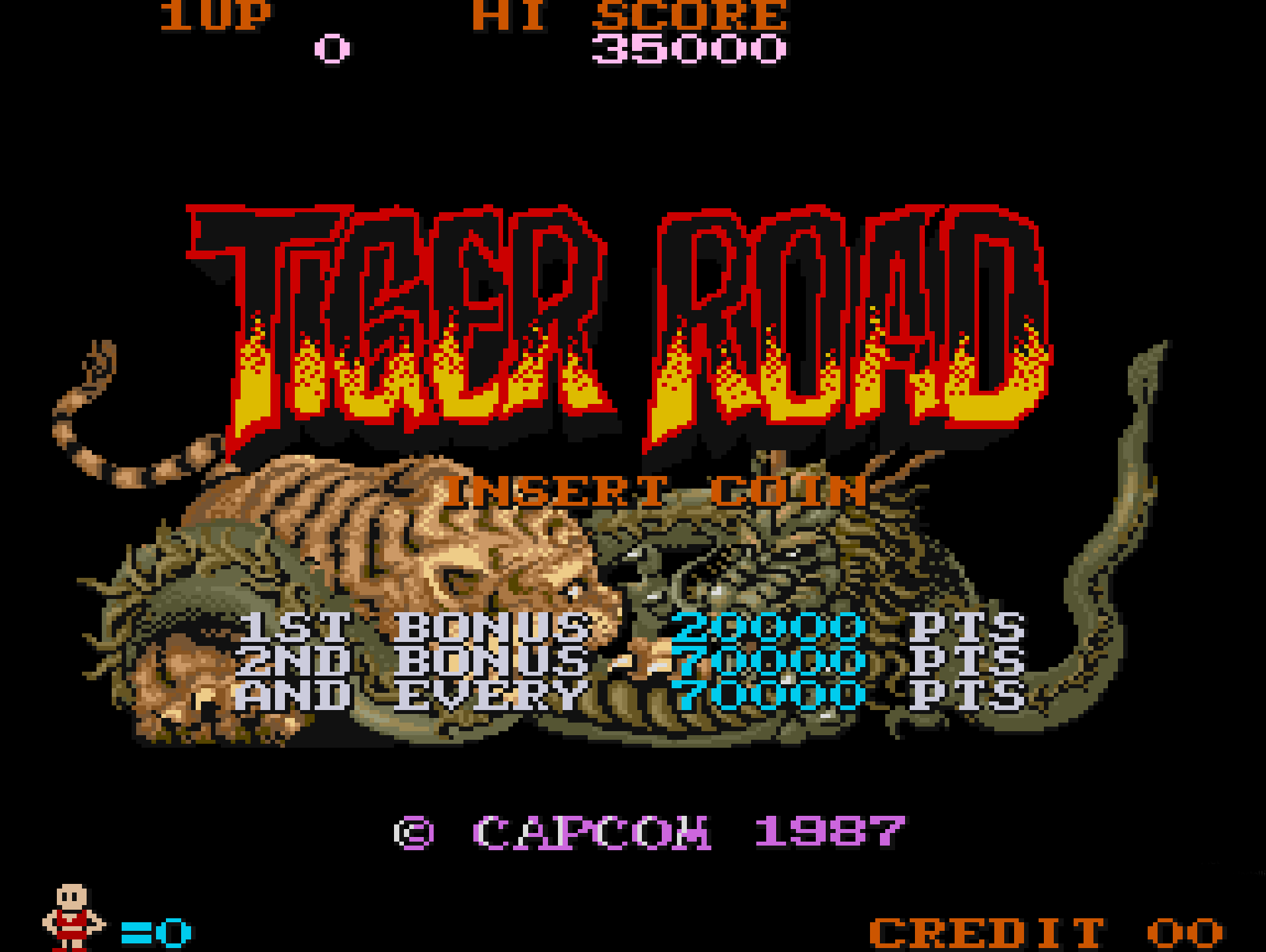
Cultural Impact and Legacy
- Ported to platforms like the Commodore 64, Amiga, and PC Engine
- Popular in European arcades and among home computer users
- Recognized for its detailed sprites and martial arts theme
- Part of Capcom’s broader library of 1980s action games
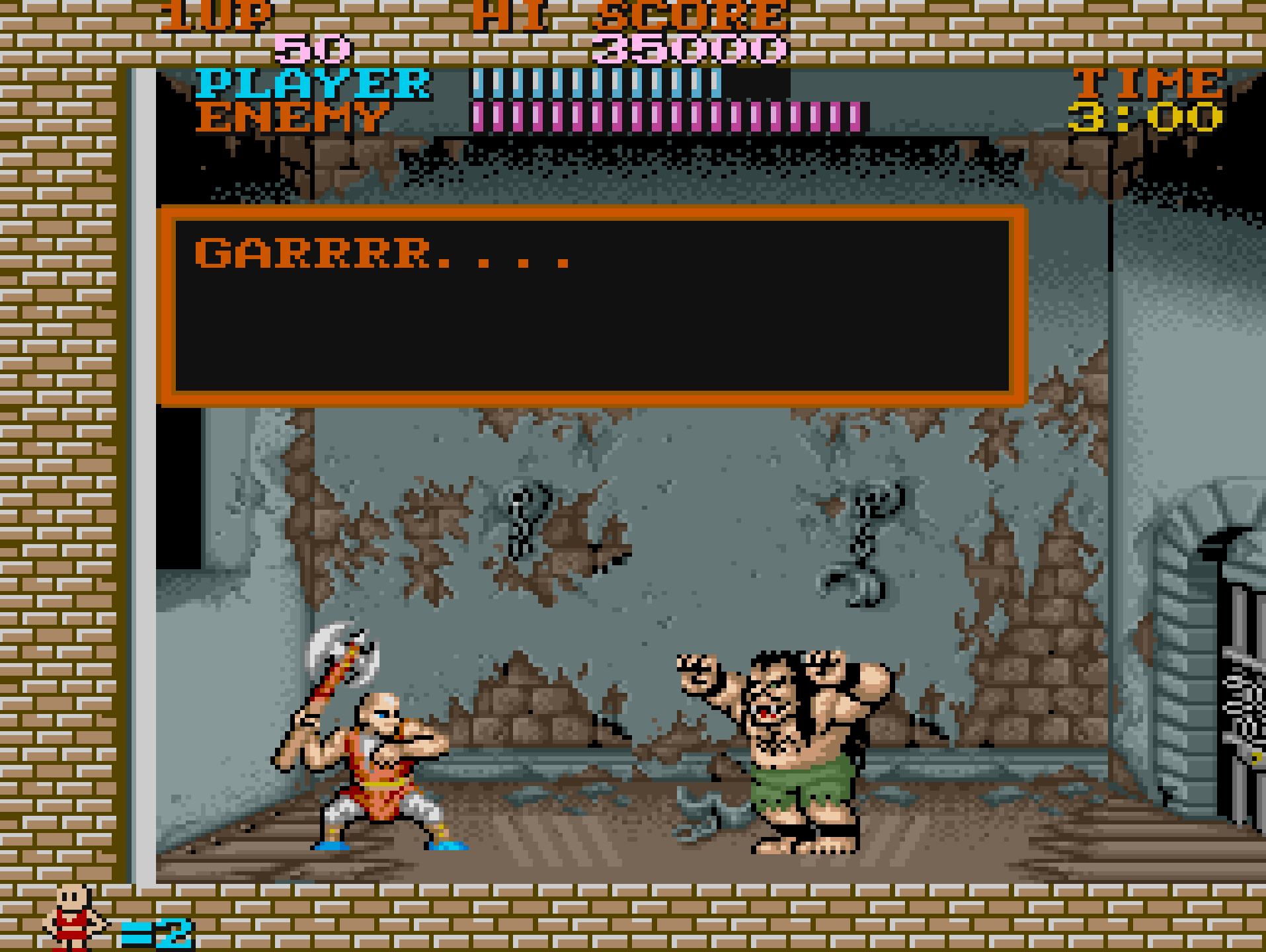
Fun Facts
- The hero can train to increase health and learn special moves
- Some ports featured different level layouts and bosses
- The PC Engine version is considered one of the best home adaptations
- The game’s title screen featured dynamic scrolling effects
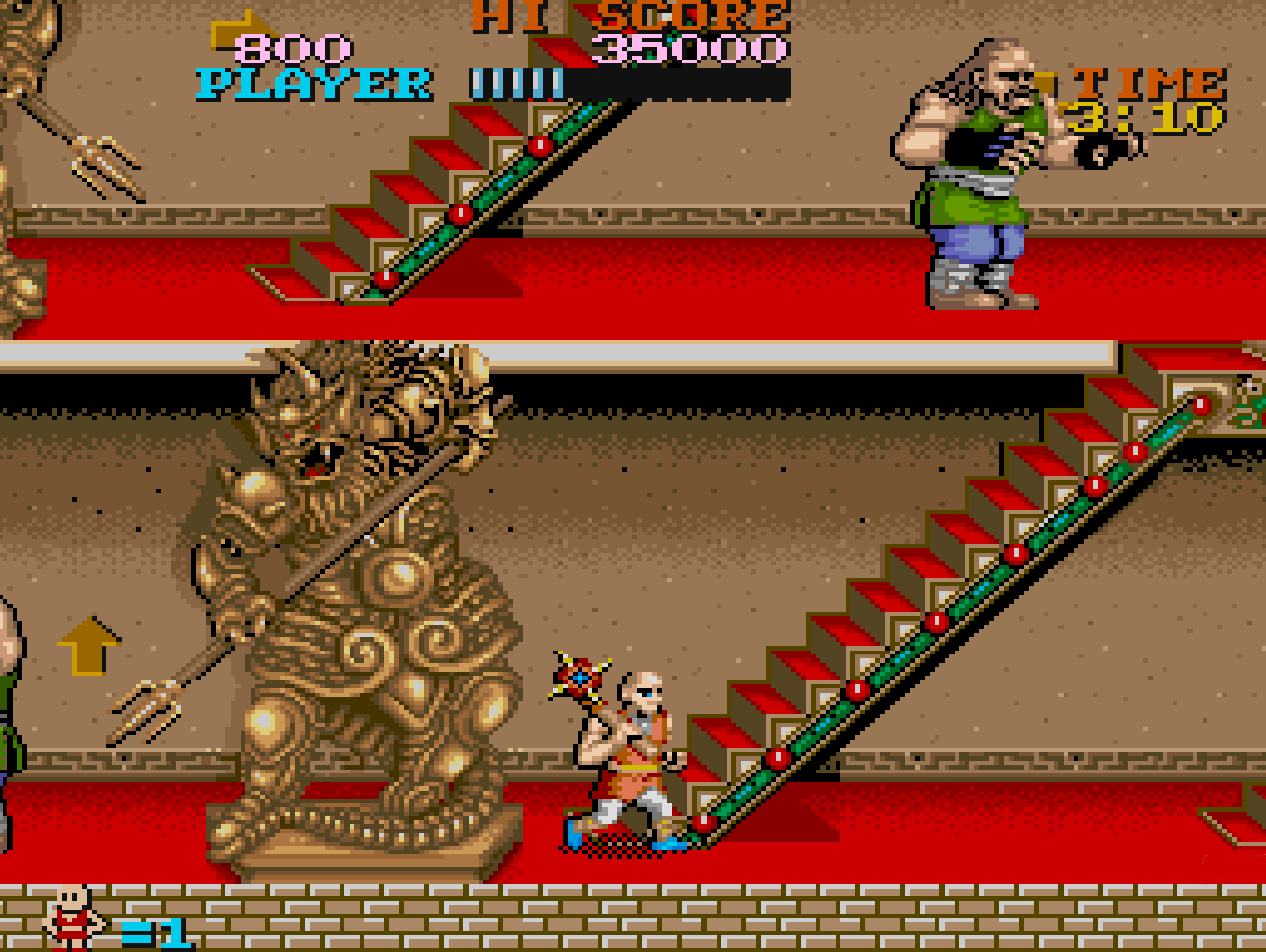
Conclusion
Tiger Road delivered classic arcade action with a martial arts flair. Its combination of platforming, weapon combat, and large bosses helped it stand out in Capcom’s lineup. Today, it remains a respected example of late-’80s action-platformers.
Want to Go Deeper Into Arcade History?
If this game left you craving more, dive into the complete stories behind some of the most iconic arcade genres and franchises. These articles explore the rise, innovation, and legacy of the games that shaped arcade culture:
- Top 25 Hidden Gem Arcade Games of All Time - Unearth the overlooked classics that still shine bright for arcade enthusiasts today
- Top 25 Beat ’Em Up Arcade Games of All Time – Discover the ultimate ranking of the greatest beat ’em ups ever to hit arcades
- The History of Beat ’Em Up Arcade Games – From Double Dragon to Final Fight, here’s how brawlers ruled the late ’80s.
- Donkey Kong’s Rise to Fame: How a Desperate Bet Created a Gaming Legend – The untold story of how Nintendo turned failure into a global icon, launching Mario, Miyamoto, and a new era of arcade storytelling
- The Economics of Arcade Gaming: The Golden Age of Coin-Op – This article explores the full arc of arcade economics: the explosive rise, the industry-shaking crash, and the waves of reinvention that kept the business alive
- The Complete History of Mortal Kombat Arcade – How a gritty fighter became a pop culture phenomenon.

